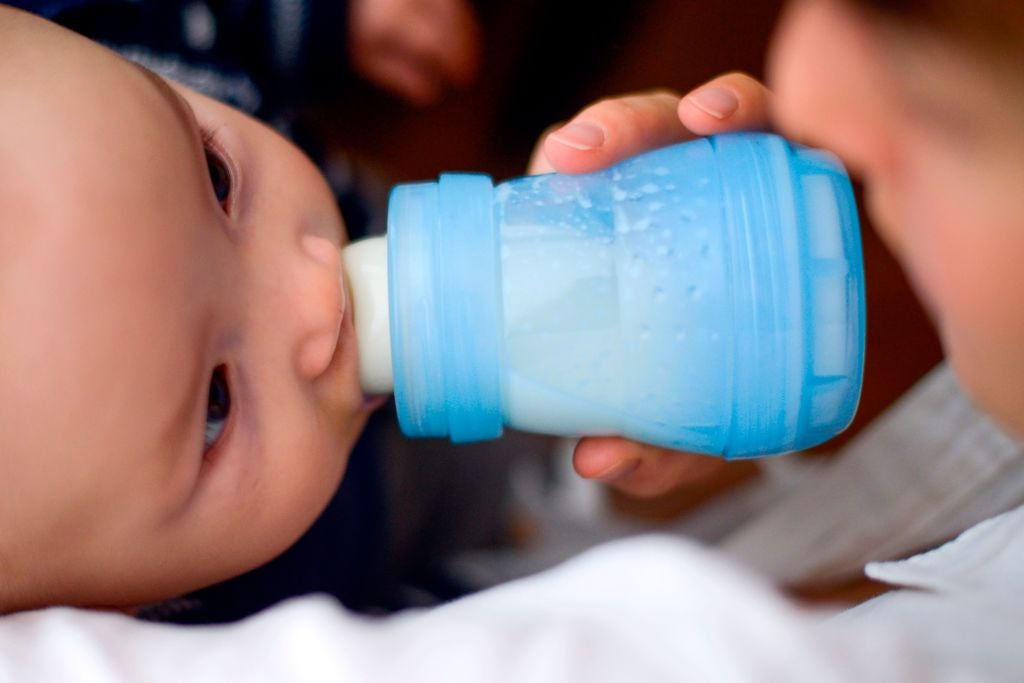Court rejects self-employed mothers’ sexual discrimination case over Covid support
‘How a judge could consider this not to be discrimination has really shocked all of us,’ says campaigner

Your support helps us to tell the story
From reproductive rights to climate change to Big Tech, The Independent is on the ground when the story is developing. Whether it's investigating the financials of Elon Musk's pro-Trump PAC or producing our latest documentary, 'The A Word', which shines a light on the American women fighting for reproductive rights, we know how important it is to parse out the facts from the messaging.
At such a critical moment in US history, we need reporters on the ground. Your donation allows us to keep sending journalists to speak to both sides of the story.
The Independent is trusted by Americans across the entire political spectrum. And unlike many other quality news outlets, we choose not to lock Americans out of our reporting and analysis with paywalls. We believe quality journalism should be available to everyone, paid for by those who can afford it.
Your support makes all the difference.A charity has lost its legal challenge against the government for indirect discrimination over the amount of financial support available to self-employed mothers during the pandemic.
Pregnant Then Screwed argued that the Self-Employed Income Support Scheme (Seiss) breaches equality laws and that as a result of the way that grants are calculated, around 75,000 women who took maternity leave between 2016 and 2019 received lower payments than those whose average income was unaffected by maternity-related leave.
Seiss payments are assessed based on average monthly profits over the previous three tax years – effectively between 2016 and 2019 – and worth up to £2,500 a month.
The case was brought by the charity under its official name, The Motherhood Plan, and also by Kerry Chamberlain, a self-employed energy analyst with three young children, whose income was significantly reduced in recent years as a result of maternity leave.
At a remote hearing in January, lawyers for the charity and Ms Chamberlain argued that the policy is indirectly discriminatory because the eligibility conditions and calculation method used by the government for the scheme does not exempt periods of maternity leave.
But, in a ruling on Wednesday, Ms Justice Whipple dismissed the case, saying there was no unlawful discrimination as a result of the scheme and that the chancellor, Rishi Sunak, had considered the “plight” of women who had recently been on maternity leave.
The judge said: “The second claimant [Ms Chamberlain] and the group of women she represents have not been the subject of indirect discrimination under the [European Convention on Human Rights] in either of the ways suggested.
“But even if I had found discrimination to exist, I am satisfied that it would be justified applying the [manifestly without reasonable foundation] test.
“Further, the chancellor was not in breach of the [Public Sector Equality Duty] because he did have due regard to the plight of women who had recently been on maternity leave.”
Joeli Brearley, founder of Pregnant Then Screwed, said: “We are extremely disappointed that this legal challenge was unsuccessful. Reading the verdict we feel that there are serious legal errors and find the judgment to be fundamentally flawed.
“We are, of course, deeply concerned for the vulnerable new mothers who have had a much-reduced payment compared to their male and childless counterparts, and are now really struggling over the winter period.
“How a judge could consider this not to be discrimination has really shocked all of us.”
Ms Brearley said the campaign group is currently looking into appealing the decision.
Mr Sunak, when asked last May why he had not excluded stretches of maternity leave from the self-employment scheme, said: “For all sorts of reasons people have ups and downs and variations in their earnings, whether through maternity, ill-health or others.”
Pregnant Then Screwed launched legal proceedings after his response and argue the scheme infringes on the Human Rights Act and the Equality Act.
The government could have been made to fork out rebates to tens of thousands of self-employed women if campaigners had won the case.
Ms Brearley, who is also chief executive of Pregnant Then Screwed, has previously warned of “heartbreaking messages” the campaign group has received from so many women.
She said: “For some this drop in income has left them and their young family in desperate poverty; while their male colleagues are in receipt of the full benefit.
“But this isn’t just about the 75,000 vulnerable new mothers who have received a payment that is well below what they should have received. It is about the critical importance of maternity leave and ensuring that as a society we value it.
“Giving birth and caring for the next generation, particularly in a baby’s first year of life, is work; it is mentally and physically exhausting work.”
The campaigner argued making sure the “next generation survives and thrives” is ultimately the “most important job” out there as she warned it was “insulting” maternity leave was being dismissed as being equivalent to getting sick or enjoying a sabbatical.
“It sends out a very dangerous message about how this government views mothers and the integral role we play in a well-functioning society,” she said. “This court case is about defending women’s rights.”
A spokesperson for the treasury said they “welcome” the ruling, adding their support for the self-employed is “one of the most generous” worldwide.
“And part of a £280bn investment to protect jobs and businesses during the pandemic,” they added. “We’ve always tried to support as many people as possible through our schemes and will continue to do so.”
Additional reporting by Press Association




Join our commenting forum
Join thought-provoking conversations, follow other Independent readers and see their replies
Comments